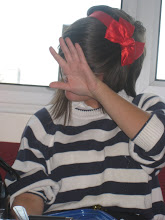
'Today's innovators in graphic image-making have grown up with the digital, with a computer in every classroom. For some, it's worth recognizing that even before school, digital kit in the bedroom, the playroom has been the real starting point of their creativity'.
This is a quote from a book extract i found on the net about the effects technology is having on society, but also the effects its now had being a designer. It only concentrates on digital art/illustration, but i find this really reflects how I have felt since I've been at university. When i first came to Uni I was a keen painter and used to only really produce images through traditional means... Since being in Leeds I have learnt how to use CS3 programmes and so now like to use them alot. It has seemed to be quite a natural transition from traditional to digital...
The artcile itself talk about greater access to constantly improving hardware and at ever-decreasing prices helping drive the purchasing demand from the public. Also as the quality of available hardware continues to rise, so does the software industry's output. Creative imaging and manipulation software has become far more powerful and easier to use, with manufacturers recognizing a new market growing quietly alongside the traditional market of creative professionals.
The explosion in the use and accessibility of both the Web and digital photography has also helped to fuel the rise in digital image-making. With the tools for manipulating digital photographs now readily available, many illustrators and designers have sought to increase their range of skills and move into areas closer to commercial digital illustration. For the home-user looking to find an audience for their work, publishing on the Web has been the logical progression: it avoids print, production, and postage costs which, in other media, can be frighteningly high.
It makes you wonder whether the internet is the key factor in why print and traditional means are starting to disappear? Learning programmes and anything you want a tutorial on, you can find on the internet, so many artists now have portfolios online as it's more accessible, more people will se your work. But does this not take away from the 'real' feel of/for the work and also the person it's come from?

No comments:
Post a Comment